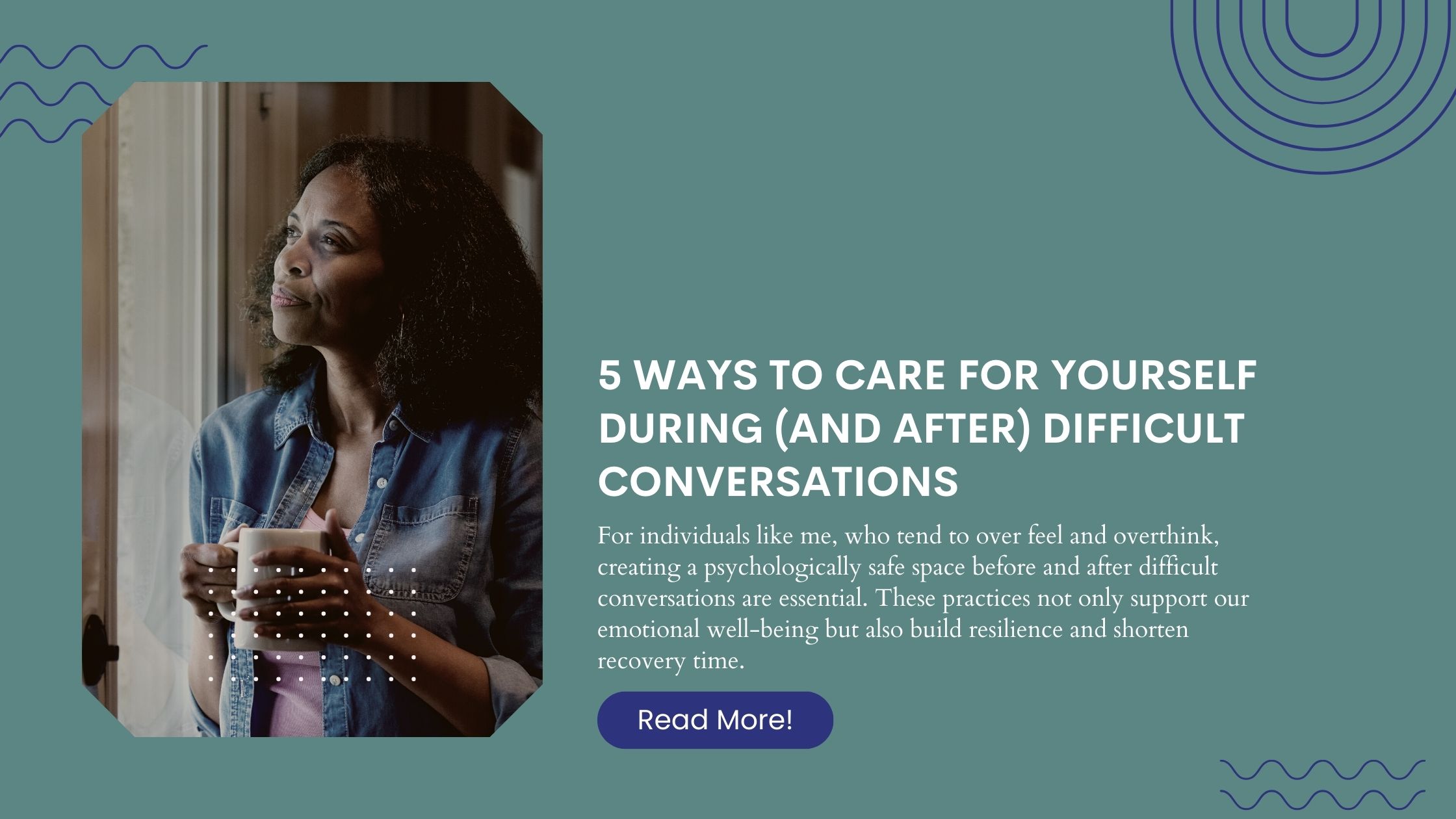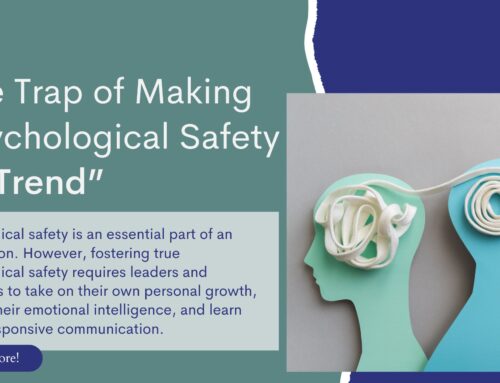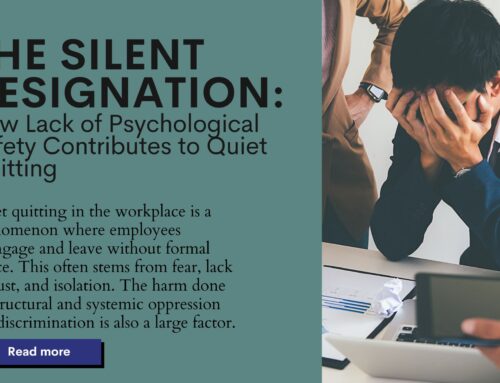
As a recovering conflict-avoidant, people-pleasing, feelings-avoidant introvert, having difficult conversations can be extremely challenging before, during, and afterwards. If in addition to that one happens to also be a highly sensitive processor who feels their feelings very deeply when they do surface, the experience feels that much more painful. However, difficult conversations are part of any normal healthy relationship. So how do you care for yourself when those conversations arrive?
- Give yourself space to prepare – Sometimes we know a conversation is coming up and can prepare. When you know in advance that you are going to have a conversation that could bring forth strong feelings, vulnerable sharing, or tense moments, give yourself time and space before the conversation. It’s often helpful to even take 5, 10, or even 15 minutes to meditate, visualizing the best possible outcome for the conversation.
- Give yourself time to process and recover after the conversation. Again, sometimes it’s not possible, and when you can, take time to go to a quiet place and allow your nervous system to calm down and reset afterwards. Sometimes listening to soothing music of your choice can help, very light reading, a funny show or just sitting or lying in silence can help transition you to a more calm internal space.
- Give yourself permission to defer the conversation – If you are in a situation where an interaction happens and the person is pushing to talk about it immediately, it is perfectly fine for you to say ‘no’ and request a few minutes or even hours to process prior to going into the conversation. You can even request to sleep on it, however, I wouldn’t recommend delaying longer than 24-48 hours if possible.
- Give yourself permission to step away from the conversation if it becomes too much – Sometimes we are in intense conversations and the activation becomes overwhelming. What typically happens is we pressure ourselves to push through, but that can end up backfiring as the dysregulation can lead to communication that derails the conversation and ultimately makes things worse. If you feel yourself getting overwhelmed, feeling as if you want to either blow up or shut down, that is a signal from your body that it’s time to step away. Simply say “I need to stop now and take some time to reset, calm down (or whatever language feels natural for you).”
- Recognize the vulnerability hangover when it comes, and take care of yourself – sometimes after conversations that involve big feelings we can experience what’s called a vulnerability hang over (even if the conflict was resolve and ended on great terms). Symptoms often include significant fatigue, anxiety, guilt, shame, or desire to suddenly isolate yourself. When this happens the best thing is to be compassionate with yourself, and then engage in an activity that feels restorative for you. Whether it’s connecting with a safe person in your life or taking a long hot bath or shower, pouring love into yourself will help reset your nervous system.
Being in difficult conversations is challenging enough for most people, however, for people who are over feelers, over thinkers, and conflict averse people it can hit even more deeply.
Creating space that feel psychologically safe before and after these conversations can help build scaffolding and support, build our resilience, and shorten our recovery time.
Need a speaker? Learn more about Dr. Maiysha’s speaking and trainings. Bring the tools of trauma responsive communication into your organization and create psychological safety in your organization. Increase employee engagement, fulfillment, and retention. Contact us today and schedule a call with Dr. Maiysha to learn how we can improve your workplace culture. https://mindremappingacademy.com/corporate-programs









